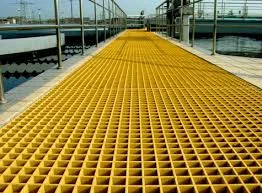
-
 Afrikaans
Afrikaans -
 Albanian
Albanian -
 Amharic
Amharic -
 Arabic
Arabic -
 Armenian
Armenian -
 Azerbaijani
Azerbaijani -
 Basque
Basque -
 Belarusian
Belarusian -
 Bengali
Bengali -
 Bosnian
Bosnian -
 Bulgarian
Bulgarian -
 Catalan
Catalan -
 Cebuano
Cebuano -
 China
China -
 China (Taiwan)
China (Taiwan) -
 Corsican
Corsican -
 Croatian
Croatian -
 Czech
Czech -
 Danish
Danish -
 Dutch
Dutch -
 English
English -
 Esperanto
Esperanto -
 Estonian
Estonian -
 Finnish
Finnish -
 French
French -
 Frisian
Frisian -
 Galician
Galician -
 Georgian
Georgian -
 German
German -
 Greek
Greek -
 Gujarati
Gujarati -
 Haitian Creole
Haitian Creole -
 hausa
hausa -
 hawaiian
hawaiian -
 Hebrew
Hebrew -
 Hindi
Hindi -
 Miao
Miao -
 Hungarian
Hungarian -
 Icelandic
Icelandic -
 igbo
igbo -
 Indonesian
Indonesian -
 irish
irish -
 Italian
Italian -
 Japanese
Japanese -
 Javanese
Javanese -
 Kannada
Kannada -
 kazakh
kazakh -
 Khmer
Khmer -
 Rwandese
Rwandese -
 Korean
Korean -
 Kurdish
Kurdish -
 Kyrgyz
Kyrgyz -
 Lao
Lao -
 Latin
Latin -
 Latvian
Latvian -
 Lithuanian
Lithuanian -
 Luxembourgish
Luxembourgish -
 Macedonian
Macedonian -
 Malgashi
Malgashi -
 Malay
Malay -
 Malayalam
Malayalam -
 Maltese
Maltese -
 Maori
Maori -
 Marathi
Marathi -
 Mongolian
Mongolian -
 Myanmar
Myanmar -
 Nepali
Nepali -
 Norwegian
Norwegian -
 Norwegian
Norwegian -
 Occitan
Occitan -
 Pashto
Pashto -
 Persian
Persian -
 Polish
Polish -
 Portuguese
Portuguese -
 Punjabi
Punjabi -
 Romanian
Romanian -
 Russian
Russian -
 Samoan
Samoan -
 Scottish Gaelic
Scottish Gaelic -
 Serbian
Serbian -
 Sesotho
Sesotho -
 Shona
Shona -
 Sindhi
Sindhi -
 Sinhala
Sinhala -
 Slovak
Slovak -
 Slovenian
Slovenian -
 Somali
Somali -
 Spanish
Spanish -
 Sundanese
Sundanese -
 Swahili
Swahili -
 Swedish
Swedish -
 Tagalog
Tagalog -
 Tajik
Tajik -
 Tamil
Tamil -
 Tatar
Tatar -
 Telugu
Telugu -
 Thai
Thai -
 Turkish
Turkish -
 Turkmen
Turkmen -
 Ukrainian
Ukrainian -
 Urdu
Urdu -
 Uighur
Uighur -
 Uzbek
Uzbek -
 Vietnamese
Vietnamese -
 Welsh
Welsh -
 Bantu
Bantu -
 Yiddish
Yiddish -
 Yoruba
Yoruba -
 Zulu
Zulu
fiberglass chemical product
Understanding Fiberglass Chemical Products Composition, Applications, and Benefits
Fiberglass, a versatile composite material, is composed of fine glass fibers, which are embedded within a matrix of polymers. This combination results in a lightweight but exceptionally strong material, making it a preferred choice in various industries. The chemical products derived from fiberglass have a significant impact across sectors such as construction, automotive, aerospace, and marine applications due to their unique properties.
Composition of Fiberglass
The basic components of fiberglass include glass fibers and resin. The glass fibers are typically made from silica, alumina, and other metallic oxides, which are melted and drawn into thin strands. These fibers are then combined with a thermosetting resin, usually epoxy or polyester, that cures to form a solid structure when heat or a catalyst is applied. This integral bonding grants fiberglass its remarkable tensile strength and durability while maintaining a relatively low weight.
Applications of Fiberglass Chemical Products
Fiberglass chemical products are widely used in numerous applications. One of the most prominent uses is in the construction industry, where it serves as a reinforcement material for concrete and other structures. Building components such as roofing panels, window frames, and insulation materials often incorporate fiberglass due to its resistance to corrosion, moisture, and temperature fluctuations.
In the automotive sector, fiberglass is utilized in the production of lightweight yet sturdy parts that enhance fuel efficiency and performance. Manufacturers use fiberglass in body panels, dashboards, and other components to reduce vehicle weight without compromising safety or durability. This trend is particularly significant in the production of electric vehicles, where weight reduction is crucial for maximizing battery efficiency.
fiberglass chemical product

The aerospace industry also benefits greatly from fiberglass chemical products, where their strength-to-weight ratio is vital for constructing aircraft components
. Parts such as fuselages, wing structures, and interior fittings are often made from fiberglass composites, allowing for more fuel-efficient designs and improved overall performance.Marine applications are another key area for fiberglass products. From boat hulls to interior fittings, the resistance of fiberglass to water and salt corrosion makes it an ideal choice for constructing durable, long-lasting marine vessels. Additionally, fiberglass is used to create various sporting goods such as surfboards and bicycles, where performance and durability are paramount.
Benefits of Fiberglass Chemical Products
Fiberglass offers a multitude of advantages, making it an attractive choice for manufacturers and consumers alike. One significant benefit is its lightweight nature, which contributes to lower shipping costs and easier handling during installation. Additionally, fiberglass is non-corrosive and can withstand extreme environments, translating to lower maintenance costs over the product's lifespan.
Another key advantage is the versatility of fiberglass, which can be molded into various shapes and forms. This adaptability allows for innovative design solutions that meet specific industry needs. The durability of fiberglass also means that products made from this material can last for decades, providing excellent value for investment.
Moreover, advancements in fiberglass technology, including the development of bio-resins and sustainable production methods, are making fiberglass chemical products even more environmentally friendly. As awareness about sustainability increases, manufacturers are exploring greener alternatives, further broadening the appeal of fiberglass in eco-conscious markets.
In conclusion, fiberglass chemical products represent an essential component of modern manufacturing across a wide range of industries. With their unique composition, extensive applications, and numerous benefits, fiberglass composites are poised to continue playing a crucial role in the evolution of materials science. As technology advances, the future of fiberglass products looks promising, paving the way for innovations that enhance performance while considering environmental impacts. Whether in construction, automotive, aerospace, or marine applications, fiberglass remains a cornerstone of durable and efficient solutions.









